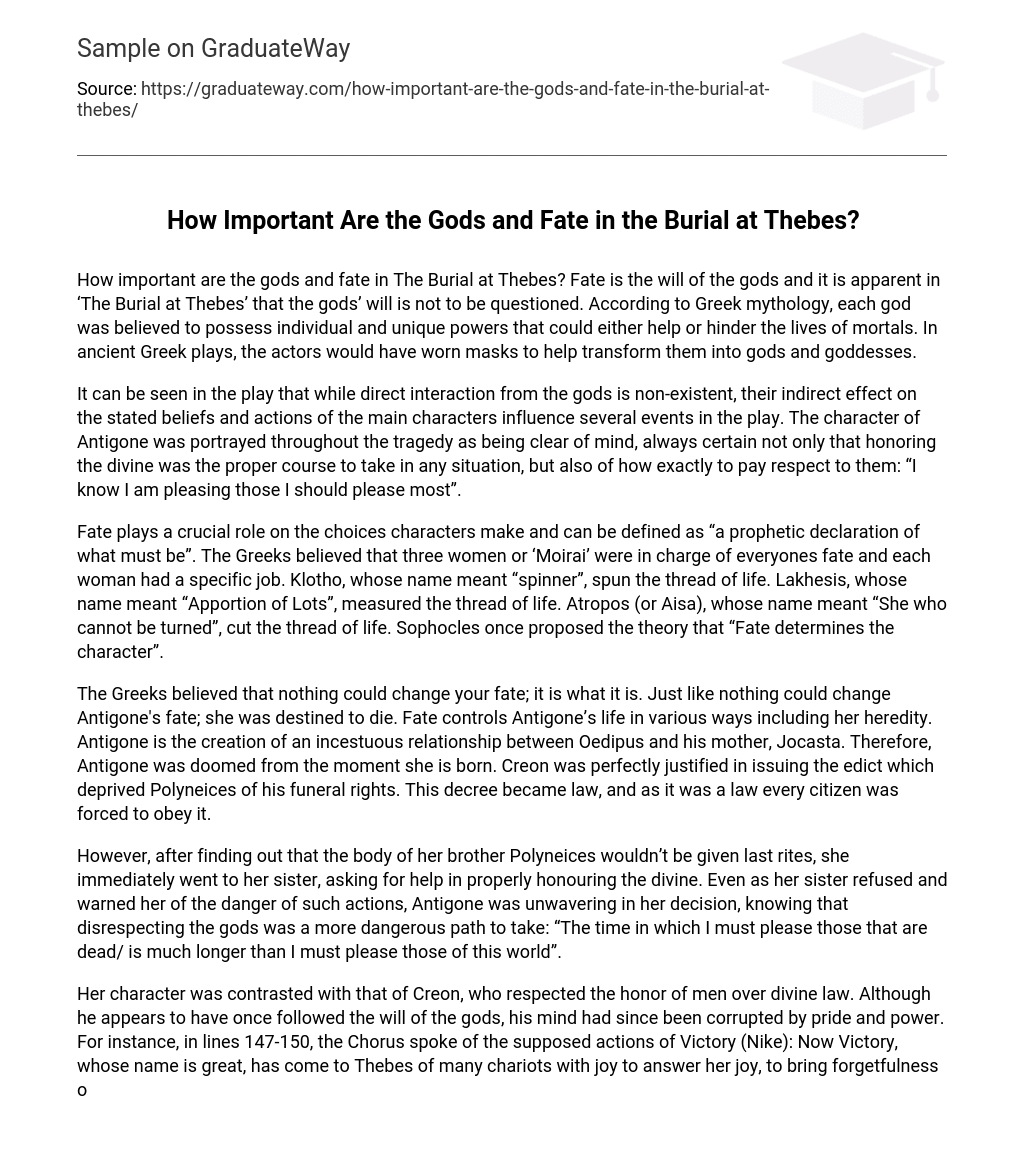How important are the gods and fate in The Burial at Thebes? Fate is the will of the gods and it is apparent in ‘The Burial at Thebes’ that the gods’ will is not to be questioned. According to Greek mythology, each god was believed to possess individual and unique powers that could either help or hinder the lives of mortals. In ancient Greek plays, the actors would have worn masks to help transform them into gods and goddesses.
It can be seen in the play that while direct interaction from the gods is non-existent, their indirect effect on the stated beliefs and actions of the main characters influence several events in the play. The character of Antigone was portrayed throughout the tragedy as being clear of mind, always certain not only that honoring the divine was the proper course to take in any situation, but also of how exactly to pay respect to them: “I know I am pleasing those I should please most”.
Fate plays a crucial role on the choices characters make and can be defined as “a prophetic declaration of what must be”. The Greeks believed that three women or ‘Moirai’ were in charge of everyones fate and each woman had a specific job. Klotho, whose name meant “spinner”, spun the thread of life. Lakhesis, whose name meant “Apportion of Lots”, measured the thread of life. Atropos (or Aisa), whose name meant “She who cannot be turned”, cut the thread of life. Sophocles once proposed the theory that “Fate determines the character”.
The Greeks believed that nothing could change your fate; it is what it is. Just like nothing could change Antigone’s fate; she was destined to die. Fate controls Antigone’s life in various ways including her heredity. Antigone is the creation of an incestuous relationship between Oedipus and his mother, Jocasta. Therefore, Antigone was doomed from the moment she is born. Creon was perfectly justified in issuing the edict which deprived Polyneices of his funeral rights. This decree became law, and as it was a law every citizen was forced to obey it.
However, after finding out that the body of her brother Polyneices wouldn’t be given last rites, she immediately went to her sister, asking for help in properly honouring the divine. Even as her sister refused and warned her of the danger of such actions, Antigone was unwavering in her decision, knowing that disrespecting the gods was a more dangerous path to take: “The time in which I must please those that are dead/ is much longer than I must please those of this world”.
Her character was contrasted with that of Creon, who respected the honor of men over divine law. Although he appears to have once followed the will of the gods, his mind had since been corrupted by pride and power. For instance, in lines 147-150, the Chorus spoke of the supposed actions of Victory (Nike): Now Victory, whose name is great, has come to Thebes of many chariots with joy to answer her joy, to bring forgetfulness of these wars;
In ‘The Burial at Thebes’, no gods ever appear for certain, but divine law and her devotion to pleasing the gods shaped Antigone’s actions, preparing her for a welcome into the afterlife. Creon, whose judgment may have been intentionally clouded by the gods, learned a hard moral lesson, as did the rest of his city and the audience.





